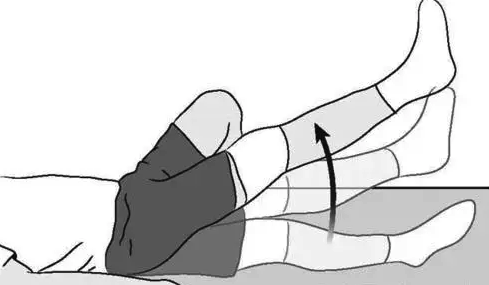Pregnancy leg soreness and weakness
When to Seek Medical Attention for Leg Weakness During Pregnancy?
Leg weakness during pregnancy is primarily caused by hormonal changes and malnutrition. It can usually be alleviated with adequate rest, rehabilitation exercises, and proper nutrition.
However, if a pregnant woman experiences the following symptoms in addition to leg weakness, it is advisable to seek medical advice promptly:
-
Symptoms of anemia or malnutrition, such as headaches, fatigue, palpitations, shortness of breath, nausea, vomiting, poor appetite, or generalized swelling.
-
Pain or limited mobility in the knee or hip joints.
-
Symptoms of a herniated lumbar disc, such as radiating pain from the buttocks to the calves, accompanied by numbness, with no improvement after rest.
How to Manage Leg Weakness During Pregnancy?
Leg weakness during pregnancy is mainly due to hormonal changes and malnutrition. It can generally be relieved with appropriate rehabilitation exercises and nutritional supplementation.
Considering the potential effects of medication on the fetus, pregnant women without additional complications can try the following methods to alleviate symptoms:
1. Adequate Rest and Proper Exercise
At the onset of leg weakness, the first step is to rest sufficiently and avoid any activities or postures that cause discomfort.
Maintain appropriate and correct exercise routines to strengthen lower limb muscles, such as:
- Straight leg raises: Lie flat, keep the knee straight, and lift the leg using thigh muscles.

Image source: Internet
- Ankle pump exercises: Move the ankle joint by contracting lower limb muscles to promote circulation.

Image source: Internet
Other exercises, such as seated quadriceps resistance training or hamstring resistance training, can also be performed under medical guidance.
2. Local Heat Therapy
Physical therapy, such as heat application for 30–60 minutes, can help reduce swelling and weakness by improving blood circulation. Rapidly rubbing the knee area may also have a similar effect.
Avoid heat therapy if the knee is red, swollen, or warm to the touch, and consult a doctor for further evaluation.
3. Ensure Sufficient Nutrition
Nutritional needs vary by trimester and individual conditions.
First Trimester: Folic Acid Folic acid is crucial for fetal nervous system development. It is recommended to start supplementation before conception and continue until the third month of pregnancy.
Second and Third Trimesters: Iron and Calcium Increased physiological demands and fetal growth require additional iron and calcium:
- Second trimester: ~1000mg calcium and 24mg iron daily.
- Third trimester: ~1000mg calcium and 29mg iron daily.
- Supplements may be necessary under medical supervision, as diet alone may not meet these needs.
Vitamins and High-Quality Protein A balanced diet low in salt, sugar, and fat, with adequate protein (meat, eggs, fish) and vitamins (fresh fruits and vegetables), supports maternal and fetal health.
4. Control Weight Gain
Excessive weight gain can strain joints and increase the risk of injury.
How to Prevent Frequent Leg Weakness During Pregnancy?
1. Balanced Diet and Nutrient Supplementation Increase intake of vitamins, minerals, protein, and iron while reducing salt and animal fats.
2. Adequate Rest and Exercise Ensure 10+ hours of rest daily and engage in lower limb strengthening exercises like straight leg raises, ankle pumps, or resistance training.
3. Regular Prenatal Checkups Attend all scheduled appointments to monitor maternal and fetal health, detect complications early, and receive tailored nutritional or medical advice.
Causes of Leg Weakness During Pregnancy
1. Physiological Edema Uterine pressure on veins and hormonal changes cause fluid retention and muscle swelling, leading to weakness.
2. Relaxin Hormone This hormone loosens muscles, joints, and ligaments to accommodate fetal growth, sometimes causing joint instability or weakness.
3. Calcium Deficiency or Osteoporosis Insufficient calcium intake may lead to osteoporosis, particularly in late pregnancy, resulting in weakness.
4. Herniated Lumbar Disc Increased weight and spinal pressure can accelerate disc degeneration, causing radiating pain or thigh weakness.
5. Anemia Iron or folate deficiency may cause fatigue, dizziness, or generalized weakness, increasing risks like preterm birth.
6. Meniscus Injury Weight gain raises knee joint pressure, making meniscus tears more likely, with symptoms like weakness or limited mobility.
7. Malnutrition Severe morning sickness can lead to poor nutrient absorption, causing weakness similar to anemia.
8. Gestational Hypertension Mild to moderate cases may cause swelling and weakness; severe cases can involve seizures.
9. Glucose Metabolism Disorders Conditions like hypoglycemia or ketoacidosis may trigger systemic fatigue, including leg weakness.